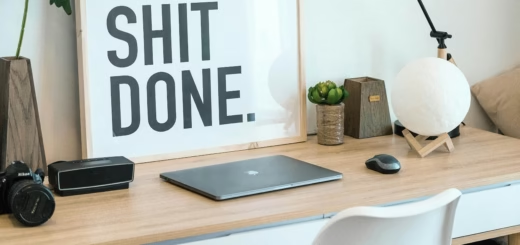How I stopped procrastinating: Life-Changing guide

Breaking the Loop: How Running Became My Keystone Habit
How I stopped procrastinating: The title would suggest that I stopped procrastination entirely. No, I did not. I still procrastinate but now I have lesser inertial when starting new projects or tasks. Let me explain in detail.
I always had two serious problems in life: alcoholism and procrastination. They weren’t just problems—they fed off each other, creating an endless cycle of unfinished projects and abandoned goals. I would delay starting things due to procrastination, and the ones I did start? Alcohol would erase my focus, leaving me with a graveyard of half-finished endeavors. It was a relentless loop, and I felt trapped.
One day, I decided enough was enough. I needed a single, powerful habit to anchor myself—a habit strong enough to pull me out of this destructive cycle. That habit was running.
The Keystone Habit Effect: Key to How I stopped Procrastinating
A keystone habit is a foundational behavior that sparks a ripple effect, leading to positive changes in other areas of life. Running became my keystone habit, and over time, it reshaped my identity and rebuilt my life in ways I never imagined. But why does one habit have the power to change everything?
1. Building Momentum with Small Wins
When I first started running, I didn’t aim for a marathon—I just aimed to show up.

First few weeks: A five-minute jog, early in the mornings, which happens to be the toughest because you end up with body pains, and in places which you thought had nothing to do with running. Take it slow and steady. Be exceptionally careful while running on roads, because the sudden jumps and accelerations to jump over things and avoiding traffic could end up injuring you and that would be the end of the life changing initiative.
Take as many days off as you want but steadily build a strong habit. Believe me, once you start getting used to the dopamine rush from running you will have formed a permanent habit but it takes time, 7 weeks by some expert studies.
- So keep running and add distance to the routine a few hundreds meters per day. Enjoy everything that you see, smell and hear. The idea is not to run but to create memories. Be ‘mindful’ of all the sights, smells and sounds, to a degree that you should be able to recount the experiences, later in life over a casual tea with friend or a campfire.
- Follow through, Subsequent weeks: Shift to routines that give you Joy, advance to more physically demanding habits like weight training, Soccer, Volleyball, badminton or whatever gives you pure joy, because you would have, at some time in your life played them. Join like minded people, form groups, join clubs and convert personal goals to social ones.
2. Rewiring My Identity
One of the core lessons from Atomic Habits, a book by James Clear, is the idea that true change happens when we shift our identity. Instead of telling myself, “I’m trying to quit drinking” or “I need to stop procrastinating,” I began saying:
“I am a runner: This should be your identity for the first 7 weeks, keep repeating this over and over again in your mind. Remember that this positive affirmative statements are exactly the ones top athletes, body builders and sportsment use to keep themselves motivated.”
“I am someone who takes care of my body: I am sure you have heard someone say that they treat their bodies like a temple and keep a close watch over what goes in and what goes out. Let that me a Mantra that you abide by for the rest of your lives.”
“I am a person who follows through: If you are a chronic procrastinator, then this is the only Mantra that you will need. Start a project, personal or official, keep adding tasks and executing them and then follow through right through to the very end. Take joy from every small wins, and celebrate every milestone covered.”
Identity-based habits are powerful because they create internal alignment. The more I ran, the harder it became to justify the behaviors that clashed with my new identity.
3. The Power of Habit Stacking
The story of “How I stopped Procrastinating” would be incomplete without mentioning the power of habit stacking. That is, building up new habits around the well ingrained habits. The Power of Habit, another important book in my life by Charles Duhigg, emphasizes the importance of routines. Once I solidified running as a non-negotiable, I built additional habits around it:
- Morning Routine: Hydration → Stretching → Running → Healthy Breakfast.
- Evening Wind-Down: Journaling → Reading → Planning for the Next Day.
These stacked habits ensured I stayed productive, mentally sharp, and emotionally stable.
4. The Productivity Shift: From Starting to Finishing
My struggle wasn’t just about alcohol—it was about never finishing anything I started. Getting Things Done introduced me to a structured approach:
- Capture tasks immediately (no more mental clutter).
- Clarify what needs to be done.
- Organize tasks into a system I trust.
- Engage without distractions.
Running gave me the discipline to follow through, and GTD gave me the system to execute.
If you liked the story of “How I stopped Procrastinating”, we suggest you also read up on 5 morning routines that can change your life.
The Measurable Transformation: A Before-and-After Comparison
| Aspect | Before Running | After Running |
|---|---|---|
| Productivity | Started many projects, finished none | Follow-through on tasks with a system |
| Mental Clarity | Foggy, distracted, overwhelmed | Clear, structured, and focused |
| Physical Health | Lethargic, unhealthy habits | Energized, improved fitness |
| Self-Identity | “I struggle with self-discipline” | “I am a disciplined person” |
| Alcohol Cravings | Frequent relapse patterns | Diminished significantly |
Conclusion: One Habit, Endless Impact
Looking back, I marvel at how I stopped procrastinating with a very small step taken at random, without any thought, but that small step taken has irreversibly changed my life, for the better. I never imagined that something as simple as running could be the catalyst for such profound changes in life. But that’s the power of a keystone habit—it doesn’t just improve one area of life; it transforms everything. If you’re struggling with inconsistency, self-doubt, or destructive cycles, start small. Find your keystone habit, and let it guide you toward the life you want to build.




2 Responses
[…] If you are enjoying the write-up on the Minimalist workspace setup, please consider reading up on our blog on ” How I stopped procrastinating” […]
[…] Enjoyed reading our take on the best productivity apps? You might be intersted in reading our article on how I beat procrastination. […]